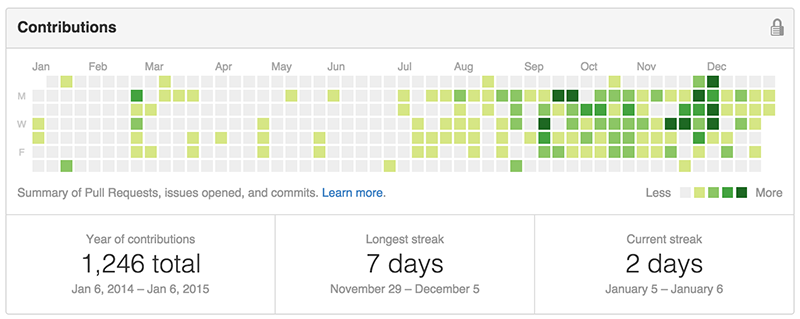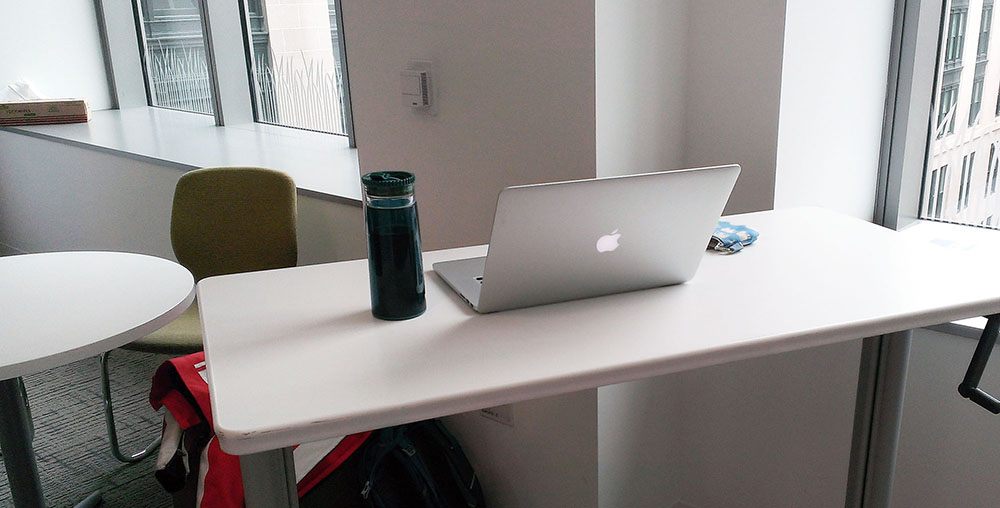I finished my Presidential Innovation Fellowship six months ago, and I feel like it’s taken that long to process the journey. For those of you who are considering government service, considering the Innovation Fellowship specifically, or merely curious, I offer these reflections on my year as a PIF.
What a year! What a year. What A year!
Serving as a Presidential Innovation Fellow was spectacular. Really! I got to work with incredibly modivated and uplifting people who truly believed that they could improve the way their government served its citizens. And by ‘work with’ I mean not only my fellow Fellows, but also the talented people that perform great acts of patience and rock-moving every day to push through government bureaucracy to get their work done.
So what was my job? Move rocks. That’s right. As a person with design and tech skills (a rare breed in government service), I could deliver tangible proof to decision makers that there are better, less costly, higher-quality solutions to the problems they’d gotten used to feeling were intractable. And by moving rocks out of the paths to these better solutions, I hopefully lightened the everyday burden on getting services to citizens.
Here are some of the rocks that Innovation Fellows moved every day:
“You can’t possibly solve X problem without several million/billion dollars, five/ten years, and a large/huge government contract”
The U.S. government has a persistent problem with being too slow to respond to changes in policy and technology. This is in part because many people believe that these issues can only be addressed through Large Projects that are highly controlled lists of tasks (requirements). In reality, any large problem can be broken down into many small problems. I spent much quality time solving the first step of many problems. These first steps (which could be anything from simple websites that showcase data to better organized government community groups) helped spark discussions about what the next step should be. These helped prove that government can move forward incrementally and more affordably. We don’t have to wait for the billion-dollar purchase but can start solving small issues along the way, and learn from them, thereby avoiding costly investments in the wrong direction further down the line.
“My director says we need to link to our org chart on the homepage”
The U.S. government has a lack of design skills on staff. By ‘design’ I don’t mean ‘making things pretty,’ although that is important, too. I mean the government lacks people who are used to structuring things in a way that makes sense to a service’s intended audience—and then reaching out to that audience to validate design decisions. Why are there a million different government websites, yet no one can find what they need on most of them? Because they were not designed in an intentional way, in a way that puts users’ needs first. I spent much of my time as a Fellow evangelizing for user-centered design and teaching/suggesting techniques to interested folks.
“[Insert name of regulation/law here] says we can’t do that”
U.S. government laws and regulations have become so complex over the years that you have to be quite the specialist to really understand any one of them. As a result, when people in government say “X law says you can’t,” it is your job as a Fellow to track down if that is actually true or just customarily believed. This is especially true in tech laws/regulations. There are so few people in government with a background in tech, and even fewer who have the time to understand both the tech and its legal space, that there are many tall tales around how to work with technology in the government sector.
Tips for future Fellows
So you won a Presidential Innovation Fellowship, eh? Here are some tips on how to make your year successful.
There are oh-so-many cats
Let’s face it—our U.S. government (and state and city governments) are having a rough time providing modern, effective and efficient government services in the face of constant technological change. As a Fellow, you’re given the amazing opportunity to help address these issues but it can be overwhelming—which do you choose? For…
…in the name of sanity and sleep, there can be only one
Only one project, that is. Or at least, a very few. You could spend your year bouncing from challenge to challenge, but this prevents you from actually delivering a useful result at the end of your short time. Pick the one or few that you think will deliver the most benefit in exchange for your time and energy.
Start training your replacement(s) from day one
You’ve heard this before in other arenas, and it is true here, too: if you want your ideas and projects to have a life past your one year, you need to focus from day one on being the change agent that gets more people excited about your excitements, and help give them the tools (from political support to software) to succeed after you leave.
Take advantage of your access and opportunity
As a shiny Presidential Innovation Fellow, you have broad access to many parts of government. Want to know why a policy is the way it is? Set up a meeting with the person who worked on it. See your agency parters doing really great work with little recognition? Send a note to their boss, and their boss’s boss.
What next?
You get spit out of the Fellowship at the other end. It was a busy year, you’re tired, you’ve learned a lot, you’re excited about the potential to make our country a better place…and you’re lucky, because now is a great time to be active in civic tech! Initiatives like Code for America, 18F, U.S. Digital Service and other digital service groups in government are gaining more and more steam.
I, personally, decided to stay in government, and joined 18F, a government in-house digital shop, to continue working to make U.S. services cutting-edge, and something to be proud of. It’s also great to be working almost exclusively on open source projects that can be used and extended by other governments and groups. I’ve been busy:

Presidential Innovation Fellow and 18F projects are in the public domain by default and can be found at Github under Presidential Innovation Fellows and 18F organizations. Remember: pull requests are public service! ^.^
Source Michelle Hertzfeld
